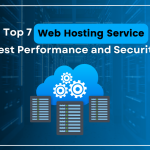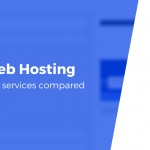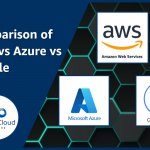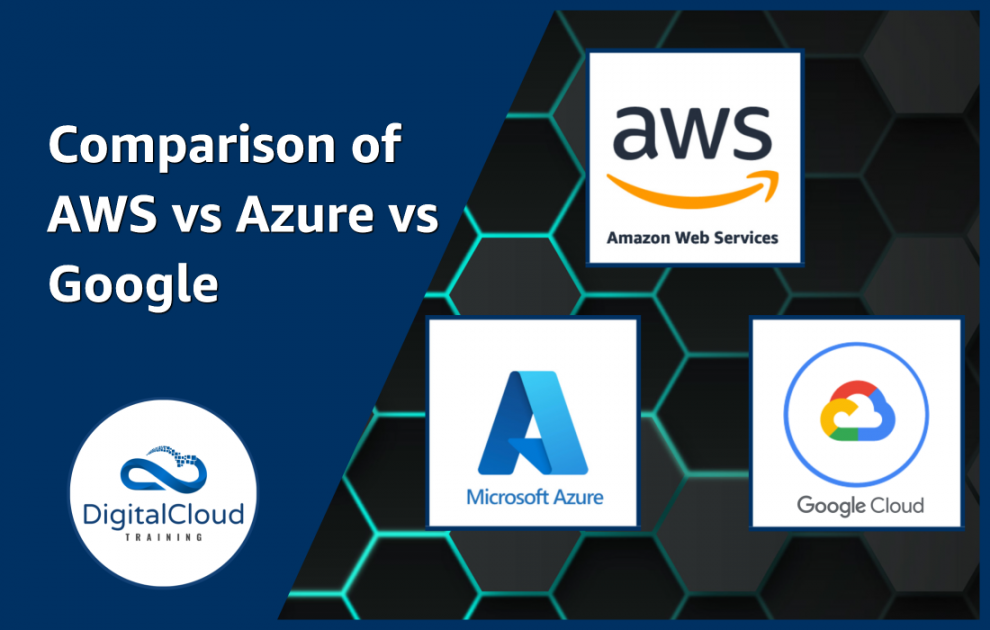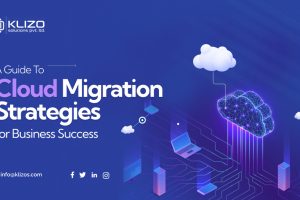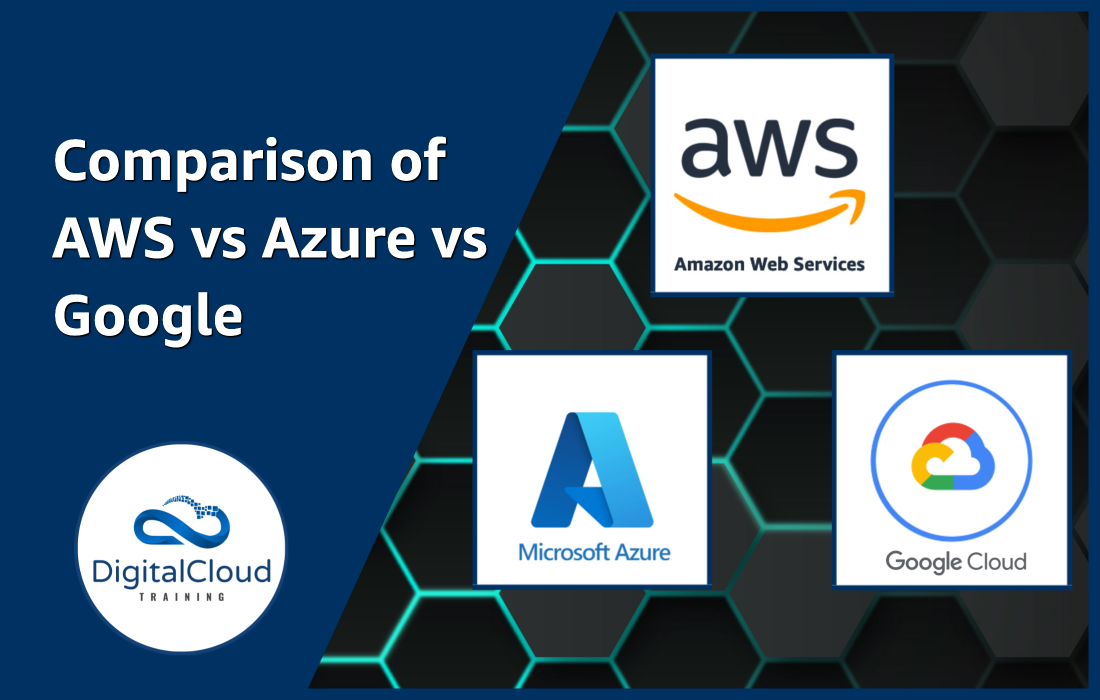
INTRODUCTION
In the ever-evolving landscape of cloud computing, businesses of all sizes are increasingly turning to cloud service providers (CSPs) to streamline their operations, enhance scalability, and leverage cutting-edge technologies. Among the plethora of CSPs available, three titans stand out: Amazon Web Services (AWS), Microsoft Azure, and Google Cloud Platform (GCP). These industry leaders offer a vast array of cloud services, catering to diverse business needs and driving innovation across various sectors.
As the demand for cloud computing continues to soar, it becomes imperative for organizations to carefully evaluate and compare these top cloud service providers to ensure they make an informed decision that aligns with their specific requirements, budget, and long-term goals. In this comprehensive article, we’ll delve into the strengths, features, and competitive advantages of AWS, Azure, and Google Cloud, providing you with the insights you need to make an educated choice.
AMAZON WEB SERVICES (AWS)
MARKET DOMINANCE AND EXPERIENCE
As the pioneering cloud service provider, AWS has established itself as a market leader with over a decade of experience in the cloud computing space. AWS boasts a vast global infrastructure, with data centers strategically located across multiple regions, ensuring low latency and high availability for businesses worldwide.
COMPREHENSIVE SERVICES AND OFFERINGS
AWS offers an extensive range of cloud services, spanning computing, storage, databases, analytics, machine learning, Internet of Things (IoT), and more. This comprehensive portfolio allows businesses to build, deploy, and scale applications and workloads seamlessly, leveraging AWS’s robust and scalable infrastructure.
SECURITY AND COMPLIANCE
With a strong emphasis on security and compliance, AWS provides robust security features, including data encryption, identity and access management, and advanced threat detection capabilities. AWS also adheres to various industry-specific compliance standards, making it a trusted choice for businesses operating in highly regulated industries.
PRICING AND COST OPTIMIZATION
AWS offers a pay-as-you-go pricing model, allowing businesses to scale their resources up or down based on their evolving needs. Additionally, AWS provides cost optimization tools and services, such as AWS Budgets and AWS Cost Explorer, to help organizations optimize their cloud spending and achieve cost savings.
MICROSOFT AZURE
HYBRID CLOUD CAPABILITIES
Microsoft Azure excels in its hybrid cloud capabilities, enabling businesses to seamlessly integrate their on-premises infrastructure with Azure’s cloud services. This approach allows organizations to leverage the benefits of cloud computing while maintaining their existing investments in on-premises systems.
ENTERPRISE-GRADE SERVICES
Azure offers a wide range of enterprise-grade services, including Azure Active Directory, Azure Virtual Machines, Azure SQL Database, and Azure App Service. These services are designed to meet the demanding requirements of large enterprises, providing robust security, scalability, and performance.
MICROSOFT ECOSYSTEM INTEGRATION
For businesses already invested in the Microsoft ecosystem, Azure provides seamless integration with other Microsoft products and services, such as Office 365, Dynamics 365, and Visual Studio. This integration simplifies deployment, management, and interoperability across various Microsoft offerings.
ARTIFICIAL INTELLIGENCE (AI) AND MACHINE LEARNING
Azure has made significant investments in artificial intelligence (AI) and machine learning services. Azure Machine Learning, Azure Cognitive Services, and Azure Bot Service enable businesses to develop intelligent applications, leverage natural language processing, and build conversational interfaces with ease.
GOOGLE CLOUD PLATFORM (GCP)
DATA ANALYTICS AND BIG DATA CAPABILITIES
Google Cloud Platform (GCP) excels in data analytics and big data processing capabilities. Services like Google BigQuery, Google Cloud Dataflow, and Google Cloud Dataproc provide powerful tools for handling large-scale data processing, enabling businesses to derive valuable insights from their data.
ADVANCED ARTIFICIAL INTELLIGENCE (AI) AND MACHINE LEARNING
GCP leverages Google’s expertise in artificial intelligence (AI) and machine learning, offering a robust suite of services like Google Cloud AI Platform, Google Cloud Vision API, and Google Cloud Natural Language API. These services empower businesses to build intelligent applications, analyze images and text, and leverage advanced machine learning models.
CONTAINER AND KUBERNETES SUPPORT
GCP is widely recognized for its strong support for containers and Kubernetes, an open-source container orchestration system. Google Cloud’s Kubernetes Engine (GKE) simplifies the deployment, management, and scaling of containerized applications, making it an attractive choice for organizations embracing microservices and cloud-native architectures.
GLOBAL NETWORK AND INFRASTRUCTURE
Google’s global network and infrastructure, powered by its extensive data centers and cutting-edge technologies, provide excellent performance, scalability, and reliability for applications deployed on GCP. Additionally, GCP’s innovative networking solutions, such as Google Cloud Load Balancing and Cloud CDN, ensure optimal traffic management and content delivery.
CHOOSING THE RIGHT CLOUD SERVICE PROVIDER
While AWS, Azure, and Google Cloud offer a wide range of cloud services, the choice of the right provider ultimately depends on your specific business requirements, existing infrastructure, and long-term goals. Here are some key factors to consider:
1. Workload and Application Requirements Evaluate the specific workloads and applications you plan to deploy in the cloud. Each CSP has its strengths and weaknesses when it comes to specific services, such as data analytics, machine learning, or containerization. Align your requirements with the provider’s core competencies.
2. Existing Infrastructure and Integrations If your organization already has a significant investment in on-premises infrastructure or specific software ecosystems, consider the integration capabilities of each CSP. For example, if you heavily rely on Microsoft products, Azure may offer a more seamless integration path.
3. Security and Compliance Needs Assess your organization’s security and compliance requirements, and ensure the chosen CSP meets or exceeds those standards. Regulated industries, such as healthcare and finance, may have specific compliance mandates that should be carefully evaluated.
4. Global Footprint and Latency If your business operates globally or requires low latency for specific applications, consider the CSP’s data center locations and network infrastructure. A provider with a more extensive global presence may offer better performance and reduced latency in certain regions.
5. Pricing and Cost Management While all three CSPs offer pay-as-you-go pricing models, their pricing structures and cost optimization tools may differ. Carefully analyze your anticipated usage patterns and workloads to determine the most cost-effective provider for your business.
6. Support and Ecosystem Evaluate the level of support, documentation, and community resources offered by each CSP. Additionally, consider the breadth of their partner ecosystems and third-party integrations, as these can impact the ease of deployment and ongoing management of your cloud solutions.
CONCLUSION
In the rapidly evolving world of cloud computing, AWS, Azure, and Google Cloud stand out as industry leaders, each with its unique strengths, features, and competitive advantages. While AWS dominates the market with its extensive service offerings and global infrastructure, Azure excels in hybrid cloud capabilities and enterprise-grade services. Google Cloud, on the other hand, shines in data analytics, machine learning, and container orchestration.
Choosing the right cloud service provider is a critical decision that should be driven by a thorough evaluation of your organization’s specific needs, existing infrastructure, and long-term goals. By carefully considering factors such as workload requirements, security and compliance needs, global footprint, pricing, and support ecosystem, you can make an informed choice that positions your business for success in the cloud computing landscape.
Ultimately, the cloud computing journey is an ongoing process, and your organization’s needs may evolve over time. Regular reassessment and flexibility in adapting to new technologies and services offered by these top CSPs will be essential to staying competitive and maximizing the benefits of cloud computing.

